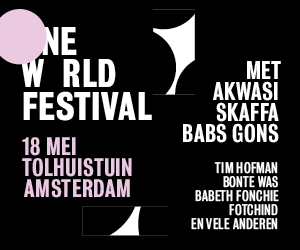Emmanuel Umpula Nkumba, a human rights defender from the Democratic Republic of Congo, is the executive director of Afrewatch. He works on human rights issues in the mining industry. The objective of Afrewatch is to ensure that the exploitation of natural resources is done according to regulations and in such a way that it benefits the local population. In Congo, problems with cobalt mining began to surface especially after its mining industry was liberalized in 2002. Then, private Congolese companies, working in partnerships with Western and Asian mining corporations, began entering the industry. As a result, conflicts between communities and companies have increased.
What are the consequences of cobalt mining in the Katanga province?
“There are a lot of mining corporations active in Katanga and the impact of their activities on local communities and the environment is far from positive. Local communities are being forcibly displaced without receiving a proper compensation. When the villagers are expelled from their lands they also lose their houses and economic means. They have to start all over again. The village chiefs, who are often the only ones being informed about the plans, are promised new houses and schools by the mining companies but hardly ever see these promises come true.”
“Pollution is another big problem related to cobalt mining. The mining industry has contaminated most of the rivers in Katanga. In the past the villagers could fish in the rivers, but now there are barely any fish left.”
Who does benefit from the mining of cobalt in the end?
“Transparency is a big problem. From what we can guess only the multinational mining corporations and a handful of people in the government benefit from cobalt mining. Before, when Congo was still called Zaire, the contribution of cobalt mining to the state budget was 70 percent. Now, with the production of cobalt doubled, it is only 10 percent. We don’t understand how that’s possible.”
Is there no legislation when it comes to the relocation of people?
“Yes there is, but the government does not monitor if these companies actually respect the law in practice. When you read through the Congolese mining law you will find that in order to apply for a mining permit a company first has to consult the population that will be affected by their activities. What happens in reality is that the companies set up informative meetings telling the people what is going to happen. So basically the people have no say in the decision-making process. It would only be a real consultation if these people are asked to give their opinion and if they are made aware of the impact the relocation or the exploitation of mining in their direct environment will have on their lives. Most of these people are uneducated, so how can they enter a discussion with these companies if they don’t know what their rights are? They would need assistance from the government during these meetings, but the government doesn’t do anything.”
“The mining companies are also supposed to draw up a local development plan in which they indicate how they will invest in the development of the affected communities. Again, this is more of a formality than a restriction. The government does not check whether these plans are actually being executed. The companies just want to make profit by reducing their expenses. Investing in communities plays no role in reaching this goal.”
What are NGO’s doing with these human rights violations?
“In many cases NGO’s come in too late. When mining corporations are applying for a permit we, and other NGO’s, are not informed. When NGO’s do get to know about new mining exploitation sites the permits are often already given out. We start working to fill the gap by training the communities and helping them to understand their rights, but by that time the companies have already started their work. Then it’s actually too late to change anything.”
What would be the first step to stop the human right violations in the mining industry?
“I think it’s about the implementation of the law. If all companies would comply with the law it would sort out a lot of problems between communities and companies. On the other hand, we also have the government who could do a better job in monitoring, by checking whether the companies are complying and respecting the law. Now the government is not doing anything in this respect.”
Why so?
“I think it’s about a lack of capacity and in some cases it’s just a lack of will.”
Do you think consumers of mobile phones and laptops also play a role?“That’s why we are here [in the Netherlands]! We are here to create awareness. It’s fine to use mobile phones and laptops, but consumers should know where the raw materials inside their consumer electronics come from.”


